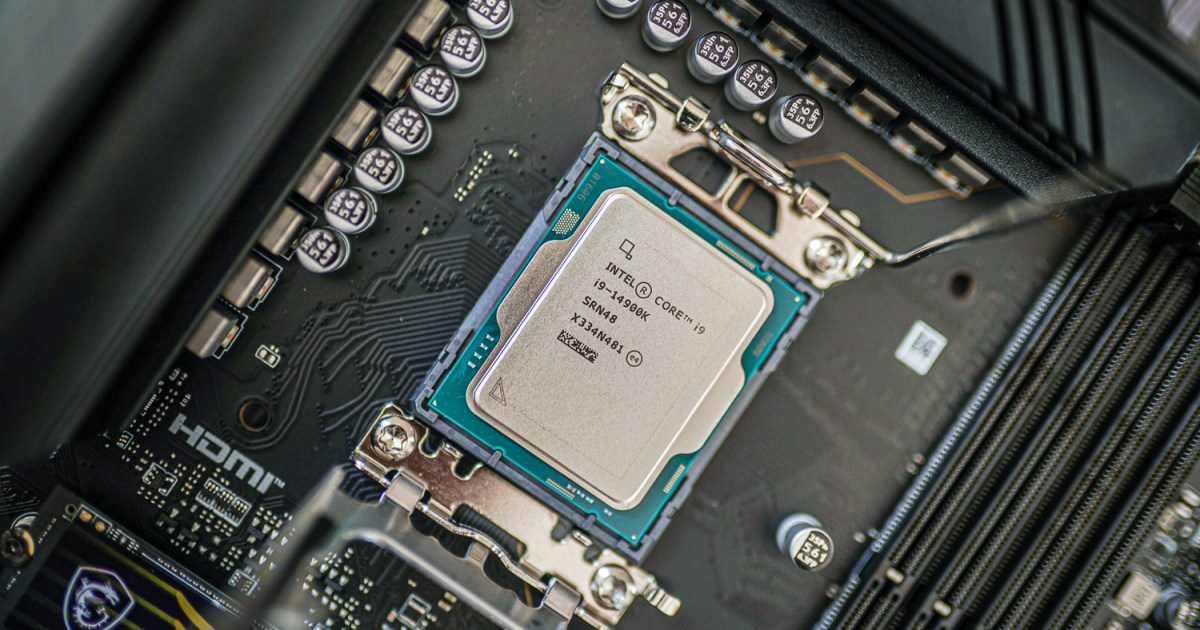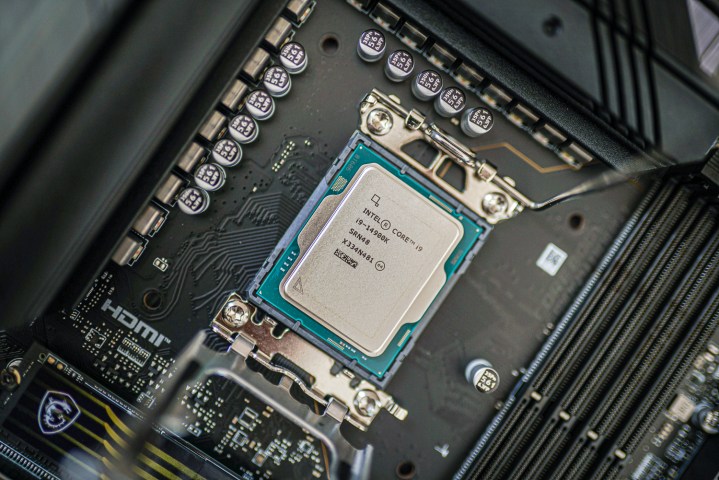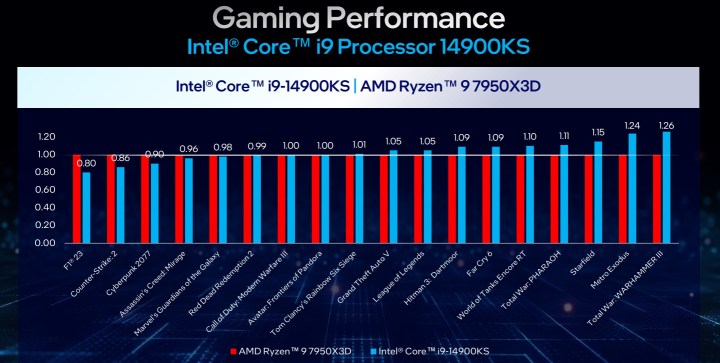Intel just launched the ‘world’s fastest’ CPU
Intel just announced the release of its best processor to date, and it's already available.

 Jacob Roach / Digital Trends
Jacob Roach / Digital TrendsIntel just announced a new CPU that is bound to rank high among some of the best processors — the Intel Core i9-14900KS. A follow-up to the Core i9-14900K, the new CPU pushes the frequency out of the box beyond what any other chip can deliver right now, reaching a massive 6.2GHz. Intel estimates that it should deliver a sizeable upgrade over its predecessor, and we now know its specs, release date, and price.
The newly released Core i9-14900KS comes with 24 cores (eight P-cores and 16 E-cores) and 32 threads, 36MB of Intel Smart Cache, and a TDP of 150 watts. Much like the other CPUs in the Raptor Lake refresh lineup, it supports both DDR4 and DDR5 RAM, and it can handle up to 192GB of DD4-3200 MT/s memory or DDR5-5600. It can be paired with either a Z690 or a Z790 motherboard and offers 20 PCIe lanes, 16 of which are PCIe 5.0, while the rest are PCIe 4.0.
The new model doesn’t change much in terms of specs compared to the 14900 K, but it does push the clock speed higher to an impressive 6.2GHz. The Core i9-14900K sports the same core count and cache size but a smaller power draw of 125 watts.
 Intel
IntelIntel claims the new chip may be up to 15% faster than its predecessor, but that refers to gen-on-gen improvements, meaning the Core i9-13900KS. The company also shared some gaming benchmarks where the CPU faced off against AMD’s Ryzen 9 7950X3D. In about half the titles, the performance was comparable, but in some games, such as Total War: Warhammer III or Metro Exodus, Intel shoots ahead, being up to 26% and 24% faster, respectively. Comparing the Core i9-14900KS to the previous-gen chip reveals subtler improvements. The new CPU is faster, but most games show gains of three to six percent, although the Core i9-14900KS was 9% faster in Marvel’s Guardians of the Galaxy and 15% faster in Metro Exodus.
Intel also promises to offer extended Application Optimization (APO) support for this chip. This is Intel’s proprietary tech that allows dynamic processor tuning in some games, boosting performance. The processor’s performance in Metro Exodus is said to be up to 11% better with APO, and the list of supported titles has now expanded to a total of 14, which means that Intel added 12 games.
The Intel Core i9-14900KS will be available starting March 14, 2024, and it will appear both in DIY versions and in prebuilts. Some prebuilt vendors, such as Maingear, will offer special delidded versions of the chip in their builds, meaning that the integrated heat spreader will be removed, alongside the thermal paste, and then replaced with liquid metal and a premium thermal paste for better overclocking capabilities. As a standalone processor, the Core i9-14900KS will start at a recommended price of $700, which is $50 more than the Core i9-14900K.
Editors' Recommendations
Here’s a shocking reminder of just how far ahead Intel is in race with AMD Intel may have a monster new CPU coming soon We have some good news about AMD’s next massive CPU launch Intel’s CPUs just got way more confusing Here’s how the M3 Max chip compares to the most powerful Windows laptopsMonica is a UK-based freelance writer and self-proclaimed geek. A firm believer in the "PC building is just like expensive…
I tested Intel’s new overclocking tool, and it does AI all wrong
One of the most interesting features of Intel's recent Core i9-14900K is its AI-assisted overclocking. Available through the Extreme Tuning Utility (XTU), AI Assist is billed as the natural next step of automatic overclocking. It uses AI to push chips further rather than relying on a predetermined list of checks that Intel already offers through XTU.
That's the pitch, at least. But according to my own testing, AI Assist doesn't do much of anything.
Apple’s M3 Max appears to keep up with Intel’s top desktop CPU
The first benchmarks of Apple's M3 Max processor just leaked, and it looks like it's going to be one speedy chip. Found in the new 16-inch MacBook Pro, the M3 Max pushes the capabilities of Apple silicon to new heights -- so much so that it can keep up with Intel's best desktop processor, all the while consuming far less power.
The exciting results come from a Geekbench 6 test. The chip listed under Apple M3 Max scored 2,943 in single-core and 21,084 in multi-core tests, respectively. Those are numbers that used to be pretty unreachable for a thin and light laptop just a couple of years ago, but they're comparable to Apple's M2 Ultra found in the latest Mac Pro (21,182 multi-core) and Mac Studio (21.316 multi-core).
Intel still thinks ARM is an insignificant threat
We've recently heard that Nvidia and AMD may soon be ready to launch their own ARM-based client processors. That, combined with predictions that ARM chips might account for up to 30% of the PC market in just a few years, sounds like worrying information for rivals. However, Intel appears to be anything but worried as it rides the high of its surprisingly good earnings. Is the threat of ARM chips really as insignificant as Intel's CEO makes it out to be?
Right now, Intel dominates the client CPU market by a large margin, although AMD also makes some of the best processors and is a formidable competitor in its own right. Either way, both companies base their chips on the x86 system architecture. However, Microsoft has taken great interest in the ARM architecture over the years, and both AMD and Nvidia will soon be able to jump in. Until 2024, Qualcomm has an exclusive deal for making ARM-based chips for Windows devices, but when that deal is up, there's nothing left to stop other manufacturers from making their own chips. With the path cleared and Qualcomm leading the charge, the transition to ARM for Windows machines seems more possible than ever.

 MikeTyes
MikeTyes 




































